
- Dec 9, 2021

WHAT IS A “SHIP” AND “VESSEL”, IN MARITIME LAW
Updated: May 17, 2023

Legislators have tried for centuries to describe the words “ship” and “vessel”, and those meanings have been plagued with interpretational issues. [1] What is a “ship” and “vessel”, in maritime law? The invention of revolutionary ‘contrivances' such submersible aircraft, and unmanned vessels [2] and floating storage regasification units, has overwhelmed maritime law. This inherent pitfall has prevailed for a long time in the common law, where various statutes often include descriptions that are, to differing degrees, distinctly worded. This paper will attempt to answer whether the definition set out in the MSA 1995 is the all-encompassing sole definitive definition.
The new meaning of “ship” contained in s.313 Merchant Shipping Act of 1995 is controversial, and stems from the previous, now largely obsolete Merchant Shipping statutes. The new law specifies a “ship” without defining vessel, [3] and notes that a “ship includes every description of vessel used in navigation.” [4] The preceding related term was contained in s.742 of the MSA 1894, which presents a circular [5] definition of a “ship” and “vessel”. It says any ship, boat, or other type of vessel used for navigation is referred to as a “vessel” and a “ship” refers to any type of vessel not powered by oars that is used for navigation. [6] An oared ‘boat' may be included under the word “vessel”, but would be omitted as a “ship” according to one decision. [7] A description of a “boat” is not included in the 1894 Act. The existing definitional emphasis on "used in navigation" has been plagued by problems that the English courts, in particular, has failed to resolve. Courts have occasionally looked at whether the craft in question was specifically used in navigation during the activity that sparked the dispute. This method can be accomplished not only by evaluating the craft's operation, but also by evaluating the susceptibility of the individual waters to be navigated.
The use of the concept of "vessel" under s.742 MSA 1894 was required in Curtis v. Wild . [8] The boat was a 'lark dinghy' that was being used on Belmont reservoir that was less than half a nautical mile across. The judge expressed his emphasis on his belief that a lark dinghy may be a boat "used in navigation," but not on Belmont Reservoir. In Southport Corporation v. Morriss , [9] a similar ruling was made in regards to an electric launch on an inland bay.
A river was viewed differently from a reservoir by Judge Bray in Weeks v. Ross , [10] because a “vessel only used a portion of them.” [11] Lord Coleridge was of the view that and if this particular boats never ventured out to sea, it is already shown that these waters could be navigated. [12] Even, similarly, in Curtis v. Wild the well-known case of Steedman v. Scofield , [13] was used to the effect that travel on water does not constitute ship navigation. In the case of Steedman , the jet-ski was being used for recreational purposes rather than strictly for navigation. The second explanation was that, unlike conventional watercraft, the jet-ski was not hollow-structured. [14] In R. v. Goodwin , [15] the Criminal Court of Appeal took the same position in applying the description of “vessel” under s.313 MSA 1995 to s.58 of the same Act. The Criminal Court of Appeal's decision in this case, seems to go much farther [16] in removing jet skis from the meaning of “vessel,” regardless of their actual use. [17]
And if a judicial concept of “vessel” uses the broad expression “contrivance capable of being used in navigation,” a court is not going to take the “anything that floats” approach. The case in Lozman v. City of Riviera Beach, Florida , [18] concerned whether or not a floating home that was not self-propelled could be found to come under the scope of vessel under 1 U.S.C. §3. [19] [20] The solution of “all that floats” was not adopted in the recent case of The Environment Agency v. Gibbs . [21] Here houseboats were the contraptions alleged to be "vessels". These contraptions were fixed in place by a series of embedded poles, ropes, and anchors after being towed to their designated spot in the marina. The water, sanitation, and electricity networks were then attached to the houseboats. The court ruled that these houseboats did not qualify as “vessels.” A houseboat was held not to be part of the property in Chelsea Yacht v. Pope , for the purposes of the Housing Act 1988. [22] A cruise, even though it is used as a residence, is not the same as real estate. [23]
Similarly, a landing stage that was a massive floating structure designed to be a permanent structure and stationary, but for the comfort of passengers, was not held not to be a vessel [24] in The Craighall . [25] For the purposes of the MSA 1995 and its predecessors, self-propulsion or self-direction are not needed for a craft to be considered a vessel. A dredger which had no propulsion was held to be a vessel in The Mudlark . [26] Decisions of the same kind were made in The Harlow [27] and The Lighter (No. 3) . [28]
The least controversial concept of “vessel” is likely to be found in the International Regulations for Preventing Collisions at Sea , (“COLREGS”) 1972, Rule 3(a) which states: “the word ‘vessel’ includes every description of water craft, including non-displacement craft and seaplanes, used or capable of being used a means of transportation on water.” Here the use of the words “includes”, “watercraft” and “capable of being used” ensures that the courts will not be stifled if they want to extend a purposive interpretation of the law.
Gauci argues case law relating to the MSA 1995’s differently worded meanings has tried, and most likely failed, to develop future-proof accurate interpretations that can persuade a layperson of the precise meaning of the words “vessel” and “ship.” [29] Undoubtedly, new ‘contrivances’ will be expanded and are referred to as boats or ships, [30] and certain legal concepts will be changed or created; lawmakers, both national and foreign, typically lag behind an industry focused on innovation, having to look at case law to find an all-encompassing sole definitive definition of “ship” or “vessel”.
[1] Harvey, Matthew, and Victorian Bar, “Arresting a “Ship”: Boats, Bunkers and Barometers”, (2012) Australian Law Journal [2] Veal, Robert, Michael Tsimplis, and Andrew Serdy, "The legal status and operation of unmanned maritime vehicles" (2019) 50(1) Ocean Development & International Law 23-48 [3] This provision uses the same language as section s.742 of the Merchant Shipping Act 1894, which defines the term "vessel." [4] This is the same definition that is used in the Civil Procedure Rules Part 61 (Admiralty Claims) [5] Mandaraka-Sheppard, A., Modern Maritime Law, 14 (2d Ed., Routledge, London, 2007) [6] Similar to Merchant Shipping Act 1854 [7] Ex parte Ferguson (1871) LR 6 QB 280 [8] [1991] 4 All ER 172 [9] [1893] 1 QB 359 [10] [1913] 2 KB 229 [11] [1913] 2 KB 229 at 234 [12] [1913] 2 KB 229 at 235 [13] [1992] 2 Lloyd’s Rep. 163 [14] Daniels, Simon, “The'ship'at the mercy of English law", (2008) 12(2) Mountbatten Journal of Legal Studies , 72-95 [15] [2005] EWCA Crim 3184 [16] At paragraph 33 [17] Douglas, Trevor, “Merchant Shipping Act 1995, S. 58: Statutory Interpretation: R v Goodwin [2005] EWCA Crim 3184,[2005] All ER (D) 111”, (2006) 70(5) The Journal of Criminal Law 385-390. [18] Lozman v. City of Riviera Beach, Florida, 568 U.S. (2013) [19] 2016 US Code Title 1 - General Provisions, Chapter 1 - Rules of Construction, Sec. 3 - "Vessel" as including all means of water transportation [20] Schauer, Frederick, “Analogy in the Supreme Court: Lozman v City of Riviera Beach, Florida” (2014) 2013(1) The Supreme Court Review , 405-432 [21] [2016] 2 Lloyd’s Rep. 69 [22] [2000] 1 W.L.R. 1941 (Court of Appeal) [23] [2000] 1 W.L.R. 1941, p. 1946 [24] Order XIX, r. 28, Rule 28 [25] [1910] P. 207 (Court of Appeal) [26] [1911] P. 116 [27] [1922] P. 175 [28] [1902] 18 T.L.R. 322 [29] Gotthard Mark Gauci, “Is It a Vessel, a Ship or a Boat, Is It Just a Craft, Or Is It Merely a Contrivance?” (2016) 47(4) Journal of Maritime Law & Commerce , 479 [30] Allen, Craig H., “The Seabots are Coming Here: Should they be Treated as ‘Vessels’?” (2012) 65(4), The Journal of Navigation 749-752
- GENERAL LAW
Recent Posts
A BRIEF INTRODUCTION TO DNA EVIDENCE
RONALD DWORKIN
WHAT IS A DISCRETIONARY TRUST
Please use a modern browser to view this website. Some elements might not work as expected when using Internet Explorer.
- Why Charter Homepage
- Luxury Yacht Vacation Types
- Corporate Yacht Charter
- Tailor Made Vacations
- Luxury Exploration Vacations
- ALL 3,566 Yachts For Charter
- Motor Yachts
- Sailing Yachts
- Classic Yachts
- Catamaran Yachts
- Special Offers
- by Destination
Yacht Reviews
- Destination Guides
- Inspiration & Features
- Mediterranean Charter Yachts
- France Charter Yachts
- Italy Charter Yachts
- Croatia Charter Yachts
- Greece Charter Yachts
- Turkey Charter Yachts
- Bahamas Charter Yachts
- Caribbean Charter Yachts
- Australia Charter Yachts
- Thailand Charter Yachts
- Dubai Charter Yachts
- Destination News
- New To Fleet
- Charter Fleet Updates
- Industry News
- Yacht Shows
- Corporate Charter
- Charter Advice
- Why Use a Yacht Broker
- Charter Costs Explained
- Add my yacht
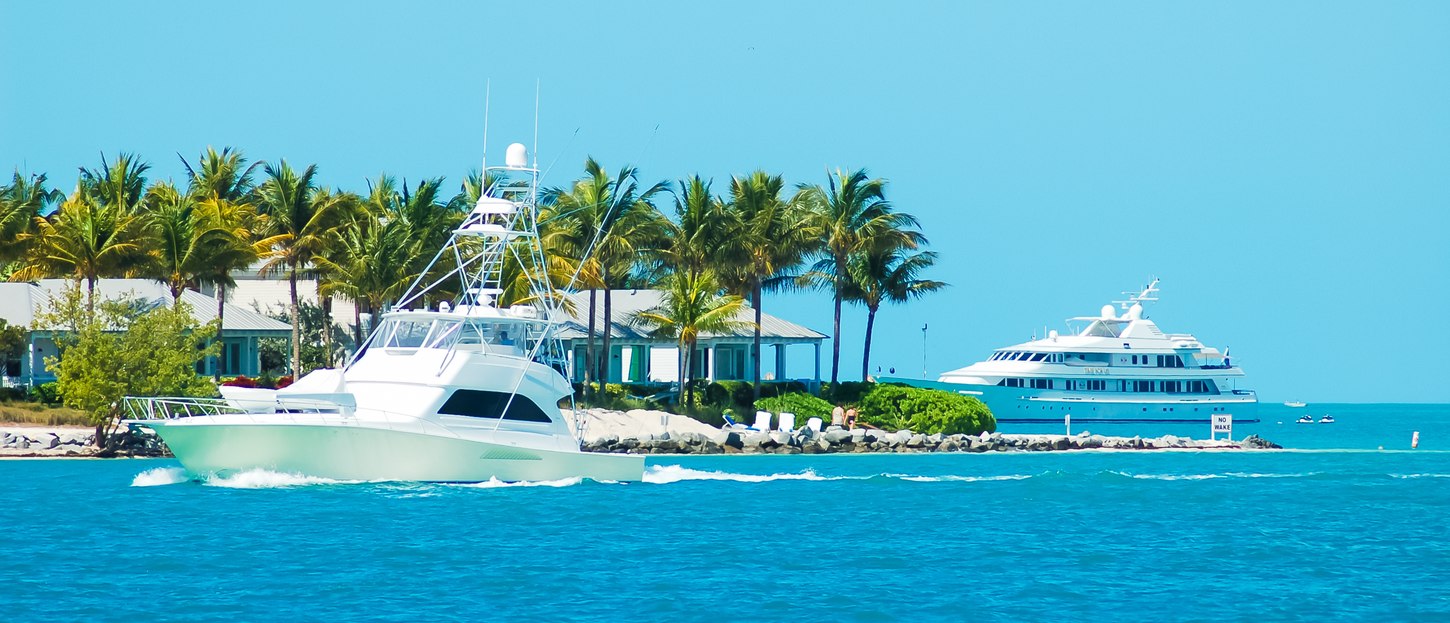
- Yacht Charter Fleet
- Luxury Charter Yachts
- Yacht Features
What are the rules for chartering a yacht in the USA?

By Editorial Team | 10 March 2022 2022-03-10
- Share this on Facebook
- Share this on X
- Share via Email
The USA boasts some of the most diverse cruising grounds in the world, attracting superyachts from far and wide to its glittering shores. If you are keen to discover more about what this amazing country can offer for a yacht charter , there are some important factors to bear in mind first.
In this article:
Types of charters in the US
Crewed charters, bareboat charters, bareboat charter agreements, tax implications for the charterer, need more advice.
There are certain legal fundamentals of chartering a yacht in US waters which you may not be aware of. So, before you go ahead and book your superyacht rental in the United States, here’s what you need to know.
Without getting too bogged down in the legal minutae, simply put, yacht brokers operate two main types of charter agreements in the US; time/voyage (aka crewed or commercial) charter agreements and bareboat/demise charter agreements.

This type of charter agreement is operated for a specific time or voyage . In general, the following applies;
- The yacht is deemed as being operated commercially
- The owner is considered to be carrying passengers for hire
- The owner maintains primary possession of the yacht
- One contract agreement
To legally operate crewed charters in US waters, the yacht must be;
- US flagged, and
- Hold a coastwise endorsement
To be eligible for a Coastwise endorsement, the yacht must either have been:
- Built in the US, or if foreign built;
- Must be granted with a MURAD Waiver.
To be eligible for this waiver, a yacht must be more than 3 years old and owned by a US citizen or US entity (dependant on how it is structured)
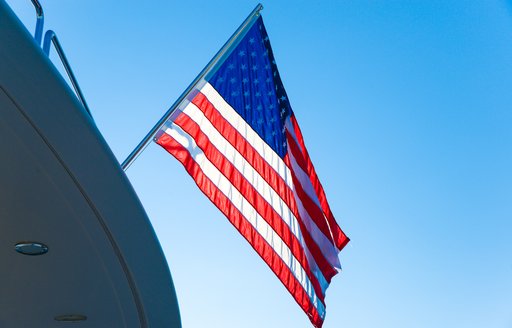
Rules for crewed charters
- Can only carry a maximum of 12 passengers
- May not conduct commercial fishing, towing, salvage, or carry cargo for hire
The obvious benefit to crewed charters is that the owner is wholly responsible for the yacht throughout the duration of the charter.
These types of charters are similar to those you would undertake, say in the Mediterranean or Caribbean , in that you are renting a yacht with crew for a specific voyage or length of time.
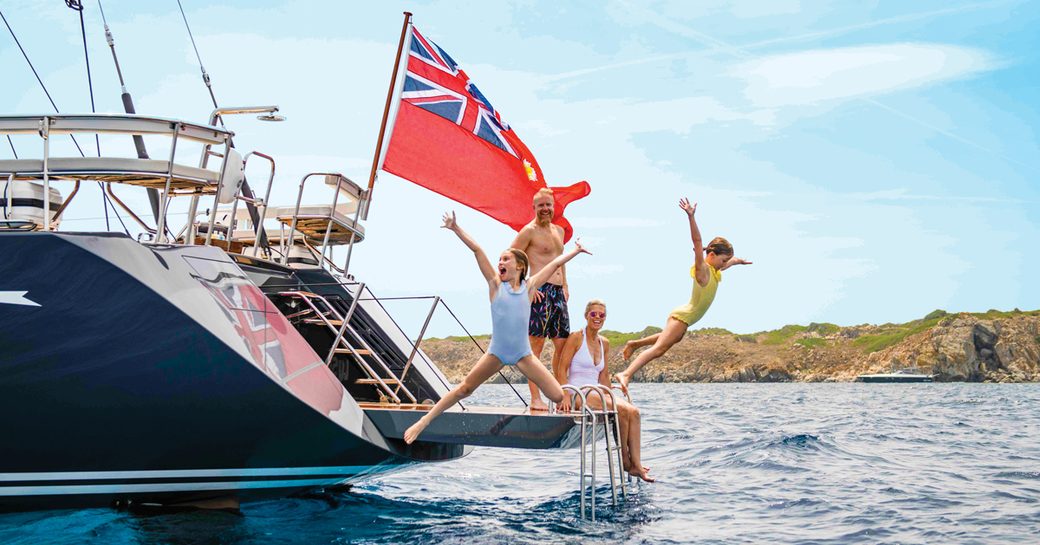
All yachts that do not qualify under the commercial charter rules and wish to cruise in US waters are considered bareboat (aka demise) charters.
This type of charter operates as follows;
- Applies to all foreign-flagged or foreign-built yachts not entitled to a MURAD Waiver
- Permitted to conduct charters in US waters, and between US ports
- The yacht is not legally considered as being used for commercial purposes
Rules for bareboat charters
- The charterer takes over the entire yacht without crew, therefore deemed to be operating as the owner for the duration of the charter
- The charterer is also responsible for the hiring of crew, in which the yacht's owner must have no involvement
- Two separate contracts are drawn up: one for hiring the yacht and one for the crew
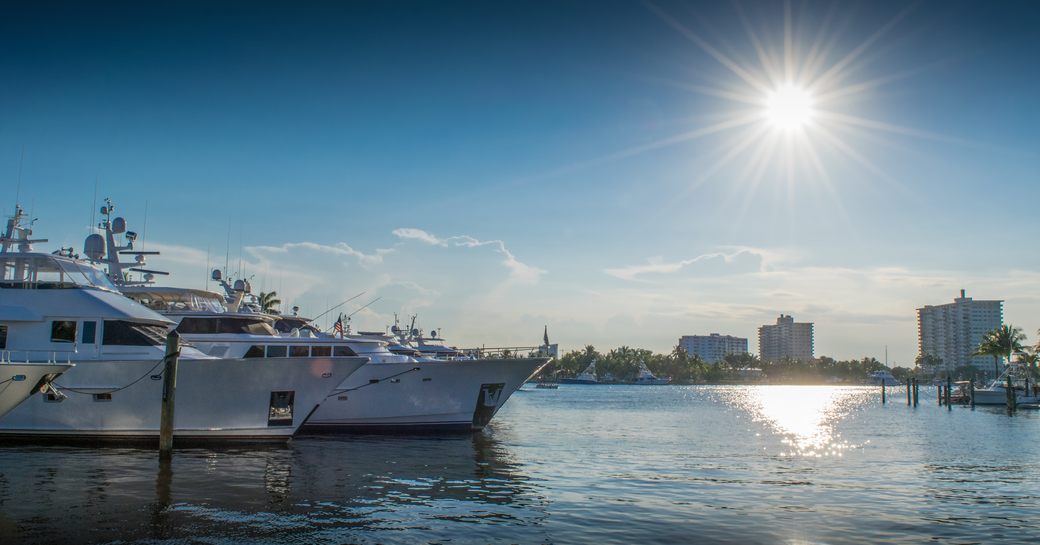
In essence, a bareboat charter agreement’s main characteristic is that it places possession of the vessel in the hands of the charter party at the time the charter starts. In legal terms, this means the owner relinquishes “possession, command and navigation of the vessel” as to be “tantamount to, although just short of, an outright transfer of ownership.”
The owner must also have no involvement in the crew selection, nor any ties to any company selecting the crew, which could be construed as enacting a measure of control over the yacht and thus contravene the rules of this type of charter.
The charterer in effect assumes all responsibility for the vessel and its activities – including an obligation to maintain or repair the yacht and return it in the same condition as it was at the beginning of their charter period.
They are also responsible for crew selection and their remuneration for the duration of the charter.
Tax may also be due depending on the type of charter. For example, a yacht undertaking a crewed charter originating in Palm Beach, Florida will have no additional tax to pay. However, for a bareboat charter, tax will be liable at 7% of the value of the charter.
There may be other potential duties payable, which can vary from state to state.
Overall, there are distinct benefits for chartering a US-flagged, or eligible, vessel. However, charterers with their heart set on a foreign-flagged yacht can still enjoy cruising the various destinations in the US, they simply need to understand the laws and what's at stake beforehand.
Planning ahead is key. This is where a good charter broker comes in, especially one with in-depth knowledge of the legal aspects of chartering foreign-flagged yachts in US waters.

If you need any further advice regarding booking a superyacht rental in US waters, then please reach out to a recommended yacht charter broker who will be more than happy to help.
To compare the complete market, take a look at all luxury yachts available for charter in the USA .
Book with Ease - Speak with a Charter Expert
Our yacht charter experts will:
- Discuss your vacation plans
- Check availability & shortlist suitable yachts
- Negotiate booking & prepare your itinerary
Enquire now for yacht availability & free consultation.
RELATED AREA GUIDES
View destinations guides, photo galleries & itineraries for areas related to this news article
Latest News

26 March 2024

25 March 2024
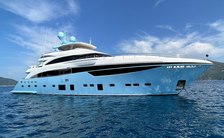
22 March 2024
- See All News
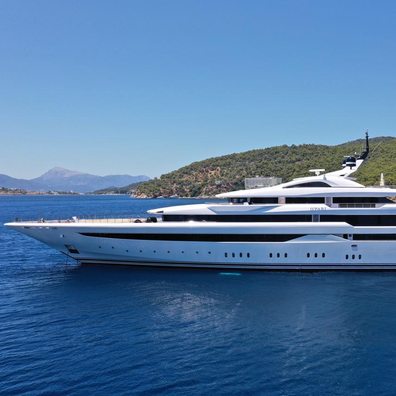
Charter Yacht of the week

- See All Reviews
Featured Luxury Yachts for Charter
This is a small selection of the global luxury yacht charter fleet, with 3566 motor yachts, sail yachts, explorer yachts and catamarans to choose from including superyachts and megayachts, the world is your oyster. Why search for your ideal yacht charter vacation anywhere else?

446ft | Lurssen
from $4,335,000 p/week ♦︎
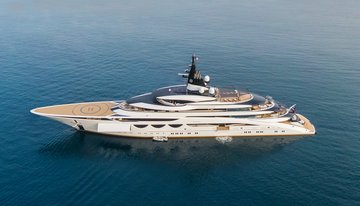
378ft | Lurssen
from $2,818,000 p/week ♦︎
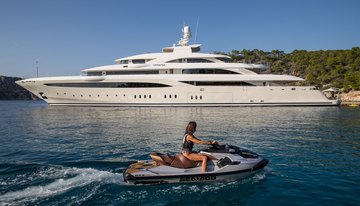
279ft | Golden Yachts
from $978,000 p/week ♦︎
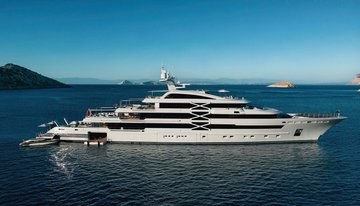
289ft | Golden Yachts
from $1,192,000 p/week ♦︎
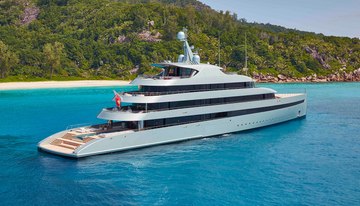
274ft | Feadship
from $1,084,000 p/week ♦︎
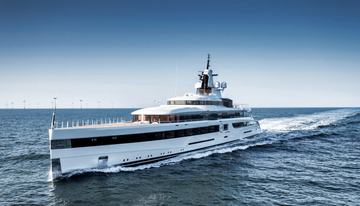
305ft | Feadship
from $1,517,000 p/week ♦︎

Maltese Falcon
289ft | Perini Navi
from $490,000 p/week
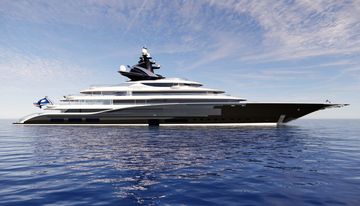
400ft | Lurssen
from $3,000,000 p/week
As Featured In
The YachtCharterFleet Difference
YachtCharterFleet makes it easy to find the yacht charter vacation that is right for you. We combine thousands of yacht listings with local destination information, sample itineraries and experiences to deliver the world's most comprehensive yacht charter website.
San Francisco
- Like us on Facebook
- Follow us on X
- Follow us on Instagram
- Find us on LinkedIn
- Add My Yacht
- Affiliates & Partners
Popular Destinations & Events
- St Tropez Yacht Charter
- Monaco Yacht Charter
- St Barts Yacht Charter
- Greece Yacht Charter
- Mykonos Yacht Charter
- Caribbean Yacht Charter
Featured Charter Yachts
- Maltese Falcon Yacht Charter
- Wheels Yacht Charter
- Victorious Yacht Charter
- Andrea Yacht Charter
- Titania Yacht Charter
- Ahpo Yacht Charter
Receive our latest offers, trends and stories direct to your inbox.
Please enter a valid e-mail.
Thanks for subscribing.
Search for Yachts, Destinations, Events, News... everything related to Luxury Yachts for Charter.
Yachts in your shortlist
The Law Dictionary
Your Free Online Legal Dictionary • Featuring Black’s Law Dictionary, 2nd Ed.
YACHT Definition & Legal Meaning
Definition & citations:.
A light sea-going vessel, used only for pleasure-trips, racing, etc. Webster. TSee 22 St.. at Large, 566 (U. S. Comp. St I 1001, p. 2845); Rev. St U. S.
This article contains general legal information but does not constitute professional legal advice for your particular situation. The Law Dictionary is not a law firm, and this page does not create an attorney-client or legal adviser relationship. If you have specific questions, please consult a qualified attorney licensed in your jurisdiction.
Browse Legal Articles
Business Formation
Business Law
Child Custody & Support
Criminal Law
Employment & Labor Law
Estate Planning
Immigration
Intellectual Property
Landlord-Tenant
Motor Vehicle Accidents
Personal Injury
Real Estate & Property Law
Traffic Violations
Browse by Area of Law
Powered by Black’s Law Dictionary, Free 2nd ed., and The Law Dictionary .
About The Law Dictionary
Terms and Conditions
Privacy Policy

The global authority in superyachting
- NEWSLETTERS
- Yachts Home
- The Superyacht Directory
- Yacht Reports
- Brokerage News
- The largest yachts in the world
- The Register
- Yacht Advice
- Yacht Design
- 12m to 24m yachts
- Monaco Yacht Show
- Builder Directory
- Designer Directory
- Interior Design Directory
- Naval Architect Directory
- Yachts for sale home
- Motor yachts
- Sailing yachts
- Explorer yachts
- Classic yachts
- Sale Broker Directory
- Charter Home
- Yachts for Charter
- Charter Destinations
- Charter Broker Directory
- Destinations Home
- Mediterranean
- South Pacific
- Rest of the World
- Boat Life Home
- Owners' Experiences
- Interiors Suppliers
- Owners' Club
- Captains' Club
- BOAT Showcase
- Boat Presents
- Events Home
- World Superyacht Awards
- Superyacht Design Festival
- Design and Innovation Awards
- Young Designer of the Year Award
- Artistry and Craft Awards
- Explorer Yachts Summit
- Ocean Talks
- The Ocean Awards
- BOAT Connect
- Between the bays
- Golf Invitational
- Boat Pro Home
- Pricing Plan
- Superyacht Insight
- Product Features
- Premium Content
- Testimonials
- Global Order Book
- Tenders & Equipment
Yacht classification definitions
The merchant shipping sector is ruled by safety regulations developed since the beginning of the 20th century, and is familiar with international conventions such as SOLAS, MARPOL and Load Lines. But the application of common safety requirements to pleasure vessels is something relatively new – a continuous work in progress – and is very much dependant on the service and the flag of the yacht.
Defining the problems
Definitions do not help. How often have we read of large yachts, superyachts, megayachts, gigayachts or other bombastic adjectives? How many times have we mentioned MCA, RINA, and Lloyd’s, without having a clear idea of who’s doing what?
A good starting point for understanding the subject is to clarify the main definitions and the roles of the main players:
Large yacht
A large yacht is a pleasure vessel with a load line length equal to or over 24m. Almost all the flag administrations have adopted safety codes dedicated to large yachts and this is, therefore, the only definition having a universal meaning in the international regulatory framework of yachts.
Commercial yacht
A motor or sailing vessel in commercial use (i.e. charter) for sport and pleasure, carrying no cargo and not more than 12 passengers.
Private yacht
A pleasure vessel solely used for the recreational and leisure purpose of its owner and his guests.
Flag administration
The government of the state whose flag the yacht is entitled to fly . This administration sets the safety regulations, manning requirements and fiscal aspects relevant to the yacht registration.
Different flag administrations can inspect the safety aspects of yachts with their own inspectors (see MCA for example) or delegate this activity partially or totally to other recognised bodies such as the classification societies.
The main flag authorities in the yachting industry are: The UK-MCA, Cayman Islands, Isle of Man, Malta, the Marshall Islands, Italy and Luxembourg.
Classification societies
Organisations that establish and apply technical standards in relation to the design, construction and survey of ships.
Classification rules are developed to assess the structural strength and integrity of the essential parts of the hull, the reliability and function of the propulsion, steering systems, power generation and all the other features installed on board which contribute to guarantee the main essential services.
In addition to this ‘third party check’ function, class societies carry out statutory duties on behalf of the major flag administrations in accordance with specific delegation agreements signed with each government.
The main class societies involved in yachting are: American Bureau of Shipping, Bureau Veritas, Det Norske Veritas, Germanischer Lloyd, Lloyd’s Register, and RINA.
Large yachts: Applicable rules and certificates
Private yachts
The mandatory requirements for these boats are very light. For the majority of flag states, a registration survey and a tonnage measurement, carried out by an authorised surveyor, are sufficient.
The only mandatory international conventions are those relevant to the marine environment: MARPOL and the Anti-Fouling System Convention.
The International Convention for the Prevention of Pollution from Ships (MARPOL) is intended to eliminate the intentional pollution and to minimise the accidental pollution of the marine environment caused by harmful substances.
The Anti-Fouling System Convention’s purpose is to eliminate the presence of harmful substances for the marine environment contained in anti-fouling paints applied to ships.
Classification
While classification is not mandatory, building and maintaining a private yacht in class is the only evidence that the boat has been designed, constructed and operated in compliance with appropriate technical standards. It is therefore highly desirable, especially in relation to insurance and re-sale purposes.
Commercial yachts
All flag administrations require commercial yachts to be certified in accordance with a specific large yacht safety code.
The most popular of these safety codes, and the first that was developed, is the MCA Large Commercial Yacht Code (LY2) published in 2004. It replaced the Code of Practice for the Safety of Large Commercial Sailing and Motor Vessels (LY1) published in 1997.
LY2 is applied by the Red Ensign Group Flags (UK, Cayman Islands, Isle of Man, Bermuda, Gibraltar, British Virgin Islands, etc.) and is recognised as a reference standard for all the yachting industry.
Other flags have developed similar codes. Luxembourg, Italy, Marshall Islands, Malta, Belize and The Netherlands are some examples.
While introducing a stricter set of rules and regulations compared to private yachts, commercial registration offers yacht owners the possibility of making a profit from the chartering activity of their boats, and allows them to take advantage of all the other benefits of a commercial operation (in particular VAT exemption on the purchase, sale, bunkering, provisions, dry-docking, and others).
Mandatory certificates
The number and type of the mandatory certificates depends on the size of the vessel; the following is an indicative list:
- International Tonnage Certificate : A measurement of the internal volumes of the yacht expressed in gross tons (GT). This measurement should not be confused with displacement tonnage, which quantifies the weight of a vessel.
- Large Yacht Code Certificate : Covers life-saving appliances, fire protection and means of escape, navigational and signalling equipment, intact and damaged stability, manning and crew accommodation.
- Class Certificate : This mainly deals with the yacht’s hull, machinery, electrical equipment and outfitting.
- International Load Line Certificate : This certifies the weather-tightness of the yacht.
- Safety Radio Certificate : This is applicable if gross tonnage exceeds 300GT This concerns the radio communication and distress installations.
- MARPOL Annex I Certificate : This is applicable if gross tonnage exceeds 400GT This deals with the disposal of oil and bilge water from machinery spaces.
- MARPOL Annex IV Certificate : This is applicable if gross tonnage exceeds 400 or the yacht is certified to carry over 15 persons. This deals with the disposal of sewage from ships.
- MARPOL Annex V : This is applicable to all ships. It covers the disposal of rubbish.
- MARPOL Annex VI : This is applicable if gross tonnage exceeds 400GT as well as to all main and auxiliary engines with a power exceeding 130kW. It concerns the emissions from main and auxiliary engines (NOx and SOx).
- Safety Construction and Safety Equipment : These are additional prescriptions on machinery, electrical parts, life-saving and navigational equipment for yachts with a gross tonnage above 500GT.
- International Safety Management Certificate : This is only applicable to yachts having a gross tonnage greater than 500GT. A certified management company is requested to carry out this service, preparing operational manuals, procedures for drills, and taking care of the maintenance of the yacht and its installations.
- International Ship and Port Security Certificate : This is only applicable to yachts having a gross tonnage greater than 500GT and deals with the anti-piracy certification. A certified management company is requested to provide the ashore assistance and establish on-board procedures and operational manuals.
The GT Factor
The gross tonnage value (GT) is a key issue, not only as a reference for the registration fees applied by the different flag administrations, but also because it determines whether an international convention, rather than a particular safety standard, applies to a yacht.
The table below summarises how the conventions and relevant certificates come into force depending on the gross tonnage of the yacht. In particular, the following values may have a critical impact:
300GT: In many codes, when you reach this value the yacht must be certified in unrestricted service (stricter requirements regarding stability, load line and life-saving appliances).
400GT: This is the threshold for almost all the environmental conventions such as MARPOL and Anti-fouling System.
500GT: This is the threshold for the application of the SOLAS Convention, meaning stricter requirements on machinery, safety systems, materials of construction, fire protection, life-saving appliances and navigational equipment. Furthermore an external certified management company is requested for the ISM and ISPS certifications.
The tonnage issue could also arise on existing yachts when undertaking major refits or modifications, in that any change to the internal volumes of the boat – such as adding enclosed deckhouses or superstructures, or modifying the hull transom or bow – will modify the tonnage value with the risk of subjecting the yacht to stricter mandatory rules.
UPDATE: Since this article was originally published, LY2 has been superseded by Large Commercial Yacht Code Revision 3 (LY3) .
More stories
Most popular, from our partners, sponsored listings.

Yacht law explained
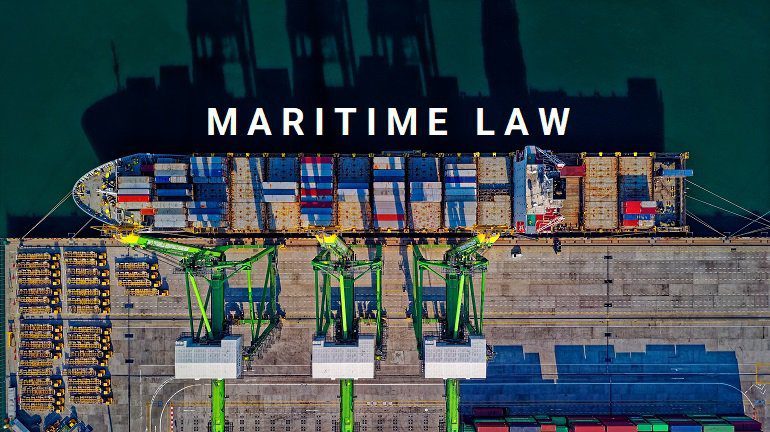
Introduction
The yachting industry is a complex and ever-evolving world, encompassing a wide range of legal and regulatory considerations. From yacht classifications to flag states and classification societies, understanding the intricacies of yacht law is crucial for yacht owners, charterers, and industry professionals. In this comprehensive guide, we will explore the key aspects of yacht law, including the definitions and roles of major players, applicable regulations, and mandatory certificates. Whether you are a seasoned yachtsman or new to the world of yachting, this guide will provide you with valuable insights into the legal framework that governs the industry.
Understanding Yacht Classifications
Yacht classifications, also known as classification societies or class societies, play a vital role in ensuring maritime safety. These classifications dictate the design, construction, and ongoing maintenance of large commercial vessels and yachts. The classifications provide highly detailed and technical standards that cover the yacht’s hull, engines, and key safety systems. It is important to note that the application of common safety requirements to personal vessels like yachts is relatively new, and the procedures are constantly evolving. The specific regulations and standards applicable to a yacht depend on its size, purpose, and flag state.
Standard Yacht Types
Before delving into the different types of yacht classifications, it is essential to understand the various yacht types. Yachts are typically segmented based on their overall length and passenger capacity. The standard yacht classification types include:
Large Yachts or Luxury Sailing Yachts: These are the largest classification types for yachts. A large yacht has a load line length equal to or over 24 meters (approximately 80 feet). Safety codes for large yachts have been adopted by most flag administrations, making this classification universally recognized in the international regulatory framework of yachts.
Commercial Yachts: Commercial yachts are used for commercial purposes, such as sport or charter. These yachts do not transport or carry any cargo and have a passenger capacity of no more than 12 individuals. All flag states require commercial yachts to be certified in accordance with a specific large yacht safety code. The most widely used safety code for commercial yachts is the MCA Large Commercial Yacht Code (LY2).
Private Yachts: Private yachts are primarily used for recreational and leisure purposes by their owners and their guests. These yachts are not engaged in commercial activities. The regulations and requirements for private yachts are generally less stringent compared to commercial yachts.
The Role of Classification Societies
Classification societies are organizations that establish and enforce the rules governing the construction, maintenance, and operation of yachts and vessels. These societies play a crucial role in ensuring the safety and compliance of yachts with international standards. There are several prominent classification societies involved in the yachting industry, including the American Bureau of Shipping, Bureau Veritas, Det Norske Veritas, Germanischer Lloyd, Lloyd’s Register, and RINA. These societies set technical standards and conduct surveys and inspections to ensure that yachts meet the required safety regulations. They also issue certifications and class certificates to yachts that comply with the established standards.
Understanding Flag States
A vessel’s flag state refers to the jurisdiction or nationality under whose laws the vessel is registered or licensed. The flag state has the authority and responsibility to create regulations for vessels registered under its flag. These regulations typically relate to the inspection, certification, and issuance of safety and pollution prevention documents for a vessel. Different flag administrations may perform inspections on the safety aspects of yachts using their own inspectors or rely on classification societies or other recognized organizations to conduct these inspections. Some of the main flag authorities in the yachting industry include the UK-MCA, Cayman Islands, Isle of Man, Malta, the Marshall Islands, Italy, and Luxembourg.
The Classification Process for Yachts
The classification process for yachts involves a series of assessments and inspections to ensure compliance with safety and technical standards. The process begins with the assessment of a yacht’s designs and continues with regular inspections during the construction or conversion of the yacht. Once it is confirmed that all standards have been met, a certificate of classification is issued. This certificate details the standards met, the intended use for the vessel, and any specific limitations or requirements. It is important to note that while a classification certificate is evidence of meeting industry standards, it does not guarantee seaworthiness.
Mandatory Classification Certificates
Yachts that fall under specific size categories are required to obtain mandatory classification certificates. The number and type of certificates depend on the size of the yacht and the applicable regulations. Some of the common mandatory classification certificates include:
International Tonnage Certificate: This certificate expresses the internal volumes of the yacht in gross tons. Unlike displacement tonnage, which quantifies the weight of a vessel, the international tonnage certificate focuses on the internal volume.
Large Yacht Code Certificate: This certificate covers various aspects such as navigational and signaling equipment, life-saving appliances, fire protection, means of escape, and crew accommodation. It is applicable to yachts that are over 24 meters in load line length and used for commercial purposes.
Class Certificate: This certificate primarily deals with the yacht’s hull, machinery, electrical equipment, and outfitting. It ensures that the yacht meets the established standards for construction and technical specifications.
International Load Line Certificate: This certificate verifies the weather-tightness of the yacht, ensuring that it can withstand various environmental conditions.
Safety Radio Certificate: This certificate is applicable if the gross tonnage of the yacht exceeds 300GT. It covers the radio communication and distress installations on board.
MARPOL Annex I Certificate: This certificate applies if the gross tonnage exceeds 400GT and covers the disposal of oil and bilge water from machinery spaces.
MARPOL Annex IV Certificate: This certificate applies if the gross tonnage exceeds 400GT or the yacht is certified to carry more than 15 individuals. It ensures compliance with regulations regarding the disposal of sewage from ships.
MARPOL Annex V Certificate: This certificate covers the disposal of rubbish and applies to all ships, including yachts.
MARPOL Annex VI Certificate: This certificate is applicable if the gross tonnage exceeds 400GT, as well as to all main and auxiliary engines with a power exceeding 130kW. It addresses the emissions from engines, specifically nitrogen oxide (NOx) and sulfur oxide (SOx).
Safety Construction and Safety Equipment: These certificates cover various aspects such as machinery, electrical parts, life-saving equipment, and navigational equipment. They are required for yachts with a gross tonnage above 500GT.
International Safety Management Certificate: This certificate is mandatory for yachts with a gross tonnage greater than 500GT. It requires a certified management company to prepare operational manuals, procedures for drills, and ensure the maintenance of the yacht and its installations.
International Ship and Port Security Certificate: This certificate applies to yachts and ships with a gross tonnage greater than 500GT. It covers anti-piracy certification and requires a certified management company to establish onboard procedures and operational manuals.
Maintaining Classification and Compliance
Maintaining classification is an ongoing process that involves regular surveys and inspections. These surveys, also known as “special surveys,” typically take place every five years and assess various aspects of the yacht’s condition and compliance. They cover areas such as the thickness of the hull, potential damage or fractures, condition of electrical systems, machinery, and equipment. It is crucial for yacht owners and operators to adhere to the scheduled surveys and ensure that any necessary repairs or updates are carried out to maintain compliance with classification standards.
The Importance of Yacht Law and Classification
Yacht law and classification play a vital role in ensuring the safety, compliance, and operational efficiency of yachts. Adhering to the relevant regulations and obtaining the necessary certifications is not only a legal requirement but also essential for the overall reputation and value of a yacht. Yacht owners, charterers, and industry professionals should be well-versed in the legal framework and understand the responsibilities and obligations that come with yacht ownership or operation. By staying informed and working with experienced professionals, yacht owners can navigate the complexities of yacht law and classification to ensure the smooth operation and enjoyment of their vessels.
Yacht law and classification are crucial aspects of the yachting industry, ensuring the safety, compliance, and operational efficiency of yachts. Understanding the roles of classification societies, flag states, and the mandatory certificates required for yachts is essential for yacht owners, charterers, and industry professionals. By adhering to the applicable regulations and maintaining classification standards, yacht owners can ensure the seaworthiness and value of their vessels. As the industry continues to evolve and regulations evolve, staying informed and working with knowledgeable professionals is key to navigating the complexities of yacht law and classification.
Subscribe to our mailing list to get the new updates!
Lorem ipsum dolor sit amet, consectetur.
What is the iyba (international yacht broker association) and why to join
Yacht insurance. what to consider, how to find the right one., related articles.

Charting a Course to Success: An In-Depth Look at the World of Marine Engineering

The Ultimate Guide to Boat Repair: How to Keep Your Vessel Shipshape

Protecting Your Seafaring Investment: Understanding the Significance of Boat Insurance

The Right Boat Storage for the Offseason
Leave a reply cancel reply.
Your email address will not be published. Required fields are marked *
Save my name, email, and website in this browser for the next time I comment.
- Search Search Please fill out this field.
What Is Maritime Law?
Understanding maritime law, history of maritime law, ship registration under maritime law.
- Frequently Asked Questions
The Bottom Line
- Government & Policy
What Is Maritime (aka Admiralty) Law, and Why Is It Important?
Julia Kagan is a financial/consumer journalist and former senior editor, personal finance, of Investopedia.
:max_bytes(150000):strip_icc():format(webp)/Julia_Kagan_BW_web_ready-4-4e918378cc90496d84ee23642957234b.jpg)
Investopedia / Joules Garcia
Maritime law, also known as admiralty law, is a body of laws, conventions, and treaties that govern private maritime business and other nautical matters, such as shipping or offenses occurring on open water. International rules governing the use of the oceans and seas are known as the Law of the Sea.
Key Takeaways
- Maritime law governs private maritime questions, disputes, or offenses and other nautical matters.
- In most developed countries, the maritime law follows a separate code and is an independent jurisdiction from national laws.
- The International Maritime Organization, or IMO, ensures that existing international maritime conventions are kept up to date and develops new agreements when the need arises.
In most developed nations, maritime law follows a separate code and is an independent jurisdiction from national laws. The United Nations (UN) , through the International Maritime Organization (IMO) , has issued numerous conventions that can be enforced by the navies and coast guards of countries that have signed the treaty outlining these rules.
Conventions are regularly amended to keep up with new business practices and technologies.
Maritime law governs many of the insurance claims relating to ships and cargo; civil matters between shipowners, seamen, and passengers; and piracy. Additionally, maritime law regulates registration, license, and inspection procedures for ships and shipping contracts; maritime insurance; and the carriage of goods and passengers.
The IMO (established in 1948 as the Inter-Governmental Maritime Consultative Organization, and coming into force in 1958) is responsible for ensuring that existing international maritime conventions are kept up to date as well as developing new agreements as and when the need arises.
Today, there are dozens of conventions regulating all aspects of maritime commerce and transport. The IMO names three conventions as its core:
- The International Convention for the Safety of Life at Sea
- The International Convention for the Prevention of Pollution from Ships
- The International Convention on Standards of Training, Certification and Watchkeeping for Seafarers
On its website, the IMO has lists of conventions and amendments expected to enter into force in the current and coming years.
The governments of the 176 IMO member states, as of 2024, are responsible for the implementation of IMO conventions for ships registered in their nation. Local governments enforce the provisions of IMO conventions as far as their ships are concerned and set the penalties for infringements. In some cases, ships must carry certificates onboard to show that they have been inspected and have met the required standards.
The origins of maritime law can be traced all the way back to ancient Egypt. In those days, ships were used to transport goods and a clearly defined set of rules was needed to ensure safety and fair trade and settle disputes between different parties.
However, it wasn’t until much later that the first written record of formal codes can be found. The Rhodian Sea Laws, formed around 900 BCE, set official rules for the Mediterranean Sea. These laws governed seafaring trade in the area, influenced the Romans, and remained in effect through the 12th century.
The oldest maritime laws on record were reportedly created on the island of Rhodes, Greece.
European maritime laws gradually evolved over the following centuries. Key developments that helped to shape current laws included the Consulate of the Sea, the Rolls of Oléron, and the early English Admiralty laws, which would later help to shape the laws of the sea in the U.S.
Maritime law arrived in the Americas in the 1600s. In 1789, the year that the U.S. Constitution was adopted, federal district courts were given exclusive jurisdiction over admiralty law cases and a uniform body of law was created.
The country of registration determines a ship's nationality. For most ships, the national registry is the country where the owners live and operate their business.
Shipowners will often register their ships in countries that allow foreign registration. Called "flags of convenience," the foreign registration is useful for tax planning and to take advantage of lenient local laws. Two examples of "flags of convenience" countries are Panama and Bermuda.
What Is Maritime Law and Why Is it Important?
Maritime law is the body of rules that govern everything that goes on in the sea and open waters. These rules help clear up various disputes that can occur and ensure that the people and organizations that work on the water behave correctly and are protected.
Who Controls Maritime Law?
International maritime law is governed by the International Maritime Organization (IMO). A specialized agency of the United Nations, it is the IMO’s job to establish the framework and regulations for the safety, security, and environmental performance of shipping on an international, universal level.
What Is the Difference Between Maritime Law and Law of the Sea?
Maritime law generally applies to private shipping issues, whereas the law of the sea is largely recognized as referring to public international law. In other words, the latter governs how nations should behave in maritime environments.
The world’s open seas make up about 70% of the earth’s surface and are important, both as a means of transport and as a resource. Maritime law exists to protect this asset and the people who use it. Without it, there would likely be anarchy and collapse of the global economy.
IMO. “ Conventions .”
United States Code. “ 46 USC Subtitle V: Merchant Marine .”
IMO. " Brief History of IMO ."
IMO. “ List of IMO Conventions .”
IMO. " Member States ."
IMO. “ IMO Instruments Implementation Code (III Code) .” Pages 7-10.
Britannica. " Maritime Law ."
Prudential Press. “ The Documentary History of Insurance, 1000 B. C. - 1875 A.D .” Page 5.
Britannica. “ Rhodian Sea Law .”
National Archives. “ Federal Judiciary Act (1789) .”
IMO. " Registration of Ships and Fraudulent Registration Matters ."
International Transport Workers' Federation. " Flags of Convenience ."
IMO. " Introduction to IMO ."
National Oceanic and Atmospheric Administration. “ Why Should We Care About the Ocean? ”
:max_bytes(150000):strip_icc():format(webp)/aerial-view-of-container-ship-transporting-goods-sailing-across-ocean-leaving-the-port-990280300-934f4cbf67354ca3bed647bed8fea783.jpg)
- Terms of Service
- Editorial Policy
- Privacy Policy
- Your Privacy Choices
The Law Dictionary
TheLaw.com Law Dictionary & Black's Law Dictionary 2nd Ed.
A light sea-going vessel, used only for pleasure trips, racing, etc. Webster. See 22 St. at Large, 566 (U. S. Comp. St 1901, p. 2845); Rev. St U. S. ff 4215-4218 (U. S, Comp. St 1901, p. 2847).
No related posts found
- Legal Terms
- Editorial Guidelines
- © 1995 – 2016 TheLaw.com LLC
Yacht-Building Contracts in Turkish Law
Home » Yacht-Building Contracts in Turkish Law
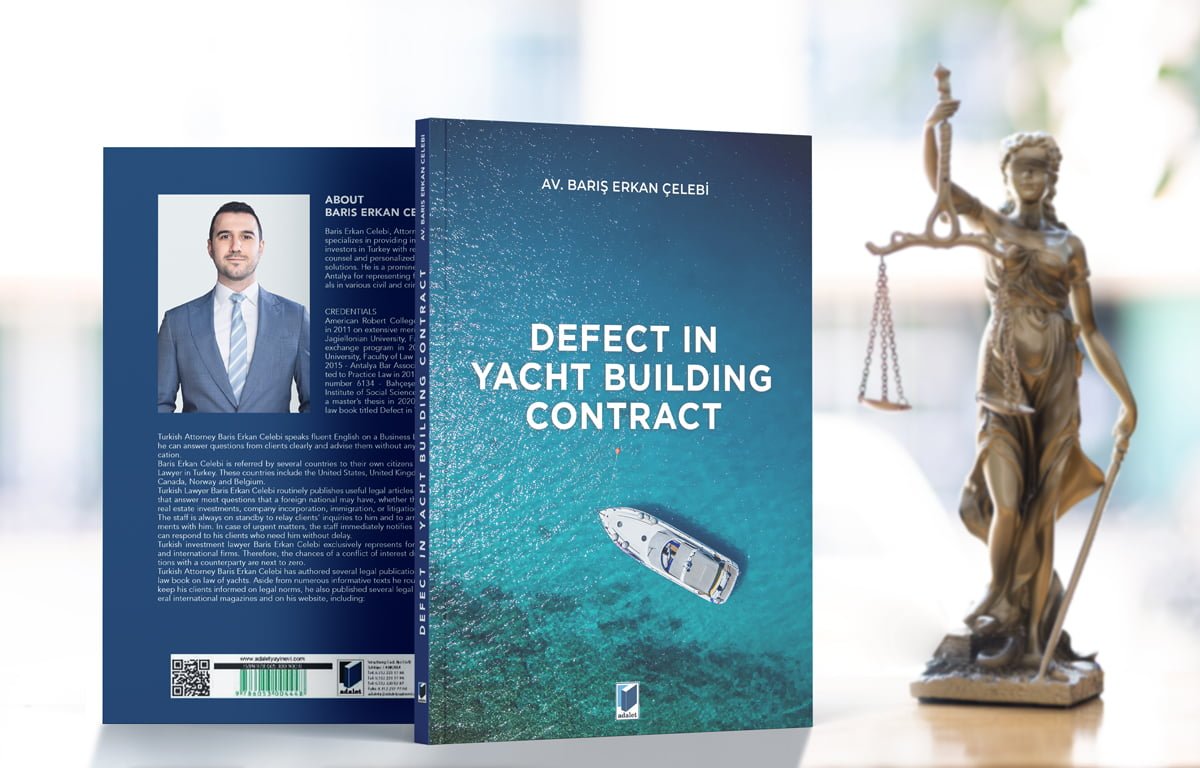
INTRODUCTION TO YACHT-BUILDING CONTRACTS IN TURKISH LAW
The legal distinction between yachts and ships.
Notions of ships and yachts, while easily distinguishable in practice, appear legally interchangeable. Despite the technical differences between “yacht” and “ship,” these differences are crucial for yacht building contracts and the buyer’s justified expectations. This is where the expertise of a Turkish yacht lawyer becomes invaluable, ensuring that the legal nuances are fully understood and respected.
Turkey’s Pioneering Role in Yacht Construction
This book aims to consolidate existing information and resources about ships and shipbuilding contracts, placing Turkey as a leading figure in the yacht building sector. Considering Turkey’s significant role in the global yachting sector and the yacht’s impact on Turkey’s economy, it becomes clear why yacht building contracts deserve a separate examination from shipbuilding contracts. A Turkish maritime law firm , with its deep understanding of the local and international legal landscapes, can provide essential guidance in navigating these complex contracts.
Defining Yachts and Their Contracts
The book covers several key areas: the definition of a yacht, the intricacies of a yacht building contract, and the specific issue of defects within these contracts. While touching on aspects of the independent contractor agreement, the focus narrows to the liability against defects, a critical concern for all parties involved. References to ships serve to illuminate the yacht-specific discussions, ensuring a comprehensive understanding tailored to yachts.
Distinguishing Yachts from Ships
In legal terms, “yacht” and “ship” are distinguished not only technically but also in their application within Turkish Maritime Law. A yacht, designed for personal use and pleasure, is defined against the broader category of ships within the Turkish Commercial Code. However, the Turkish Code of International Registry of Ships and related maritime and building contracts specifically cater to yachts, highlighting the specialized legal knowledge offered by Turkish yacht lawyers .
Independent Contractor Agreements: Yacht Building Contracts
Yacht and shipbuilding contracts are grounded in the principle of independent contractor agreements. These agreements involve the shipbuilder (contractor) and the employer (yacht buyer), with a Turkish maritime law firm often playing a pivotal role in defining the obligations under these agreements. Despite the general applicability of contractual obligations, yacht building contracts entail unique technicalities, governed often by foreign laws and containing warranty clauses that are distinct from other contracts.
Validity and Limitations of Contractual Obligations
The book also delves into the validity of contractual obligations under Turkish law, addressing the limitations imposed by concerns for public order, ethics, and protection of the weaker party. This exploration is crucial, as it examines the extent to which the principle of contract freedom, prevalent in Anglo-Saxon legal systems, applies within Turkey. The discussion is enriched by the perspectives of a Turkish yacht lawyer , who navigates through the controversial validity of clauses limiting shipbuilder liability.
Addressing Defects in Yacht Building Contracts
Finally, the book comprehensively examines defects in yacht building contracts, types of defects, occurrences, and the resultant rights and obligations. It differentiates between legal rights available to the employer, such as claiming discounts or damages, and contractual rights like liquidated damages. This section underscores the importance of engaging with a reputable Turkish maritime law firm that is expert on yachts to navigate the complex legal and contractual landscape effectively. Turkish Yacht Lawyer Baris Erkan Celebi authored a book on Yacht-Building Contracts.
CLICK ON THE LINK TO BUY
Disclaimer: The contents of this entire website have been published in good faith, free of charge, without assumption of any liability, and should not be construed as binding legal opinion on any particular person or matter. For an actual legal opinion on a particular case, please consult an attorney.
Copyright © 2024 Antalya Law Firm | English-Speaking Lawyer in Antalya
- MyNewMarkets.com
- Claims Journal
- Insurance Journal TV
- Academy of Insurance
- Carrier Management

Featured Stories
- Chubb’s Greenberg Defends Appeal Bond to Trump
- HO Insurance Customer Satisfaction at 7-Year Low
Current Magazine

- Read Online
- Supreme Court Opinion on Maritime Law Solidifies Insurer’s Choice-of-Law Clause

A dispute between an insurer and a yacht owner went all the way to the U.S. Supreme Court with a decision recently—the first of its kind on marine insurance in about 70 years—to clarify federal maritime law and state insurance law.
Last month the highest court released a unanimous opinion that choice-of-law provisions in maritime contracts, governed by federal maritime law, are enforceable over state law. Maritime contracts include marine insurance policies.
The case at hand, Great Lakes Insurance v. Raiders Retreat Realty, goes back to 2019 when a yacht ran aground in Florida, sustaining hundreds of thousands of dollars in damage. Munich Re’s Great Lakes denied the claim and sued Raiders Retreat in Pennsylvania federal court after an investigation found that fire extinguishers on the boat did not meet required standards. Raiders Retreat then countersued, alleging breach of contract under Pennsylvania’s Unfair Trade Practices and Consumer Protection Law. The insurer won in U.S. District Court for the Eastern District of Pennsylvania—finding that federal choice-of-law provisions in the policy could be enforced.
Raiders appealed and, while the U.S. Court of Appeals recognized choice-of-law provisions in maritime contracts, it sent the case back to the district court to consider whether applying New York law would violate Pennsylvania’s policy regarding insurance. Insurers typical include choice-of-law provisions in contracts and declare that New York law applies when there is no federal precedent.
The American Institute of Marine Underwriters said the Supreme Court’s decision clarified the insurer’s choice-of-law clause in a policy and said it cannot be disregarded due to another state’s laws. There are narrow exceptions but none applied to this case, the court said.
“The ruling adheres to the principles of uniformity and certainty in maritime law,” the AIMU said. Great Lakes was represented by AIMU member The Goldman Maritime Law Group and an amicus brief, cited several times in the opinion delivered by Justice Brett M. Kavanaugh, was written by member Wiggin and Dana on behalf of AIMU.
“As well stated in the court’s opinion, this decision will enable marine insurers to better assess risk,” said John Miklus, president of AIMU, in a statement. “By enforcing an insurance policy’s choice-of-law provisions in jurisdictions that are well developed, known, and regarded, the court recognizes that insurers can lower the price and expand the availability of marine insurance.”
Kavanaugh wrote that the presumption of enforceability of the provisions “facilitates maritime commerce by reducing uncertainty and lowering costs for maritime actors.”
“Maritime commerce traverses interstate and international boundaries, so when a maritime accident or dispute occurs, time-consuming and difficult questions can arise about while law governs,” he continued. “By identifying the governing law in advance, choice-of-law provisions allow parties to avoid later disputes—as well as ensuing litigation and it attendant costs.”
Pamela A. Palmer of the Clark Hill law firm said the high court opinion will help to “eliminate any confusion in the industry that marine insurance contracts are somehow different than or held to a different standard than general maritime contracts.”
“What strikes me in the decision is the court’s acknowledgment that choice-of-law provisions are important to reduce uncertainty and to lower costs for maritime entities but, more importantly in the context of marine insurers, knowing what law applies enables marine insurers to better assess risk and to price policies,” Palmer said. “This is a huge consideration for the marine insurance industry and had the court held otherwise the price and availability of insurance would be severely impacted—considerations that ironically would have harmed policyholders in the long run despite what would have felt like a short-term policyholder win in this case.”
Onlookers also waited to see if the Supreme Court would address a 1955 decision in Wilburn Boat Co. v. Fireman’s Insurance Co. , another maritime insurance case in which the court ruled a court could apply state law if there is no established maritime law. However, Kavanaugh concluded Wilburn Boat did not need to be considered because it did not involve choice-of-law provisions.
“While it would have been an additional victory for proponents of maritime uniformity for the court to have overruled Wilburn Boat, Justice Kavanaugh did not take that additional step,” wrote Charlie McCammon, president of marine risk consulting, in a blog for WTW.
In a concurring opinion, Justice Clarence Thomas wrote separately about Wilburn Boat, saying it is “at odds with the fundamental precept of admiralty law.”
“Wilburn Boat’s rationale is deeply flawed,” he added.
Topics Carriers Pennsylvania
Was this article valuable?
Thank you! Please tell us what we can do to improve this article.
Thank you! % of people found this article valuable. Please tell us what you liked about it.
Here are more articles you may enjoy.

Written By Chad Hemenway
Chad is National News Editor at Insurance Journal. He has been covering the insurance industry since 2007, reporting on trends and coverage in most lines of insurance as well as natural catastrophes, modeling, regulation, legislation, and litigation. Chad can be reached at [email protected]

Latest Posts:
- SEC Charges 2 Investment Firms, Doles Out $400,000 in Fines, for ‘AI Washing’
- Skeptical AM Best Tags US D&O Segment With Negative Outlook
- Chubb’s Greenberg Defends Issuing Appeal Bond to Trump: ‘We Don’t Take Sides’
Interested in Carriers ?
Get automatic alerts for this topic.
- Categories: National News Topics: federal maritime law , litigation , policy language , u.s. supreme court
- Have a hot lead? Email us at [email protected]
Insurance Jobs
- Direct Mail Operations Manager - Raleigh, NC
- Counsel, Claim Liability - Naperville, IL
- Global Actuarial Senior Analyst - New York, NY
- Client Advocate - Boston, MA
- Outside Property Unit Manager - Las Vegas, NV

- 3 Areas for Agents to Focus Growth Efforts in 2024 As the Hard Market Continues
- Majority of Underwriters Predict Cyber Risks Grow 'Greatly' in 2024: Survey
- What's to Come in 2024: AI Expansion, More Catastrophes, Network Consolidation
- South Carolina Liquor Liability Market 'Extremely Unprofitable,' DOI Report Says
- NCCI: Wage Growth Likely to Continue Workers Comp Payroll Growth

- Raging Storms Pushed Disaster Damages Above $100 Billion in 2023
- Maxeon Solar Files Patent Infringement Lawsuit Against Canadian Solar
- 2023 Underwriting Losses Improve but Persist in U.S. P/C Industry
- 5th Circuit: Chubb Must Cover SXSW in Suit Over Cancelled 2020 Festival
- Study: One-Third of Households with Insurance Would Switch Providers to Acquire Smarthome Devices

- April 4 Cyber Insurance - Where in the World is Coverage?
- April 11 Artificial Intelligence and Insurance Agents - Panic or Promise?
- April 18 Waiting on the Grand Reopening: Business Income Essentials
- April 25 Getting Back to Work: Workers' Comp and the Social Determinants of Health
Understanding the Legal Aspects of Yacht Ownership
Key takeaway:.
- When owning a yacht, it is important to consider practical, commercial, legal, and logistical factors. These include contract price and payment schedule, subcontracting and supplier arrangements, risks and insurance during construction, and documentation and warranties.
- The most popular way to own a yacht is through a limited liability company. It provides flexibility and liability protection, but Limited liability partnerships and foundations can also be used to own vessels as each structure needs to be carefully considered.
- Trusts can be used to own the shares of the company that owns and operates the yacht and provide tax and asset protection benefits.
- The superyacht sector has seen significant growth over the past 50 years, with over 5,600 superyachts in existence as of 2019. When buying a superyacht, it is important to consider the right yacht, practical, commercial, legal, and logistical factors and verify ownership, outstanding finance, and VAT payment with documented proof or written testimony.
Overview of yacht ownership
With significant growth and development in the superyacht sector, it is not surprising that many are seeking yacht ownership. In this section, we will provide an overview of yacht ownership and explore the various aspects that prospective yacht owners should consider.
Yacht ownership involves various expenses, such as maintenance costs, fuel expenses, insurance premiums, staffing costs, and docking fees . These expenses can add up quickly, so it is important to carefully consider your budget before purchasing a yacht .
Additionally, there are various legal considerations that come with yacht ownership, such as registration and compliance with maritime regulations . It is also important to consider the location of where the yacht will be primarily used and whether any permits or licenses are required .
Ultimately, yacht ownership can be a rewarding experience for those who are passionate about yachting and have the resources to support it. However, it is essential to thoroughly research and consider all aspects before making a purchase.
Significant growth and development of the superyacht sector
The superyacht industry has boomed! High-net-worth individuals are seeking luxury products and services. This has caused the construction of superyachts to increase in size, with some reaching over 100 meters in length. Financing for these vessels is now easier to access.
Owning a superyacht is more than just buying it. Legal structures, trust arrangements, and contracts must be considered. This is alongside all the practical and logistical aspects of yacht ownership needed for a positive experience. Despite the extra considerations, the allure of owning a superyacht remains strong in this thriving industry.
Legal structures for owning a yacht
When it comes to owning a yacht, having the right legal structure in place is essential. In this section, we’ll explore the various legal structures for yacht ownership, including the most popular option – a limited liability company . We’ll also touch on other structures, such as partnerships and trusts, and discuss why it’s crucial to get the ownership structure right. So, if you’re considering investing in a yacht, read on to learn more about the legal aspects of yacht ownership.
Limited liability company as the most popular structure
An LLC is the top choice for yacht ownership. It offers lots of benefits, like liability protection and flexibility in taxation . Data shows it’s the most preferred framework. Debts can’t be enforced against shareholders.
Plus, it enables multiple owners to share the yacht in percentages. They can also arrange management according to their preferences. Data reveals they can split related costs like insurance, maintenance, and repair.
Partnerships and foundations are also possibilities, yet they’re not as common. Partnerships have unlimited personal liability issues. Whereas, foundations have strict rules on donations and administration.
It’s best to consult legal professionals like accountants or lawyers when setting up an LLC. They can explain the regulations and tax requirements. Alternatives may have legal complexities, so verify data and get advice before making decisions.
Other structures such as partnerships and foundations
When it comes to owning a yacht, Limited Liability Companies aren’t the only legal structures available. Partnerships and foundations have become popular too. Each has its own benefits and limitations.
Take partnerships, for example. They’re perfect for those who want to combine money and share ownership based on their input. They are especially useful for couples or friends who want to own an expensive asset.
Foundations, on the other hand, can be used for non-profit goals, like charity or education. They also help with estate planning and taxes in some areas. They provide certainty on how assets are managed after ownership changes and protect from certain claims.
It is important to note that each option has its own rules around governance, management, compliance, taxes, and finances. Thus, selecting the right legal structure for yacht ownership requires thoughtfulness.
In conclusion, owning a yacht needs a solid legal structure. LLCs, partnerships, and foundations are all good options to look into. Ensure your yacht ownership structure is sound to avoid legal trouble in the future.
Importance of getting the ownership structure correct
Owning a yacht requires the right ownership structure. The most popular option is a limited liability company, which offers protection from financial risks . Partnerships and foundations are other options, but they may not provide the same protection and can be more complex. It’s important to consider the structure for long-term success.
Trusts can be used to protect owners and keep their shares confidential. Ship registration is also important for tax obligations and port states’ requirements. English law in contracts and dispute resolution can also be helpful for owners in different jurisdictions.
When buying a superyacht, cost variations, subcontracting agreements and performance criteria obligations must be taken into account. Experts can help with the purchase or upgrade, making sure finance options are above board before any agreements are made.
Trusts for owning shares of the yacht-owning company
Yacht ownership involves legal matters. Deciding to use trusts when owning shares of the yacht-owning company is a big choice. Knowing how this decision-making process works is essential for any yacht owner.
Trusts can be great for joint ownership of a yacht. They have lots of advantages. For example:
Trusts also offer other advantages beyond the ones in the table. For instance, reduced transfer costs and increased operational efficiency . It’s important to look at the advantages of trusts for owning shares of the yacht-owning company before picking the best yacht ownership structure.
Ship registration for yacht ownership
Ship registration is indispensable for yacht ownership. Without it, owners risk legal issues and a possibly costly loss. To stay in line, yacht owners must register their vessel as a ship with the applicable flag state’s authorities.
Registering a yacht as a ship offers various perks, including protection under the flag state’s laws and regulations . It also permits yacht owners to cruise their vessel across international waters while respecting international laws.
The registration process requires boat owners to submit proof of ownership , compliance with safety regulations , as well as payment of fees . Each flag state has specific requirements that owners have to follow to finish the process.
It’s noteworthy that complying with the flag state’s laws and regulations is critical during the whole time the yacht is owned . If owners don’t, the state can revoke the yacht’s registration, leading to legal complications and potential money loss.
So, yacht owners must prioritize the ship registration process to guarantee compliance and benefit from yacht ownership. With a registered vessel, owners can sail with serenity, knowing they’re sticking to legal demands and shielding their investment.
Choosing English law for contracts and dispute resolution in the superyacht industry
When it comes to the superyacht industry, using English law for contracts and dispute resolution can be smart. English law offers clear rules for those involved in issues. Plus, the English legal system is well-known for being fair and unbiased, especially when involving costly assets. Yacht owners can safeguard their investments by selecting English law for contracts and dispute resolution.
One of the advantages of English law is that contracts have enforceability. The decisions and judgments made by the English courts are respected and enforced all over the world. This is important for yacht owners who may be in one country while their yacht is registered in another. Choosing English law is very useful for yacht owners seeking global enforcement.
It’s vital to work with experienced legal professionals who understand the laws and regulations in the superyacht industry. This ensures that contracts are structured properly and disputes are resolved promptly and effectively. By picking English law and working with a good legal team, yacht owners can handle the challenging legal landscape of the superyacht industry with assurance.
Legal considerations before buying a superyacht
Before embarking on the exciting journey of owning a superyacht , it is crucial to understand the legal considerations involved. This section provides valuable insights into the various aspects that should be considered, including:
- the contract price ,
- costs variation ,
- payment schedule ,
- subcontracting ,
- suppliers ,
- performance criteria ,
- yard insurance ,
- security during construction and trials ,
- documentation ,
- warranty period ,
- default and dispute resolution ,
- special conditions ,
- VAT status ,
- inventory of included elements in the sale , and
- documentation for the seller’s company .
Contract price and costs variation
The superyacht industry presents potential buyers with a complex set of costs and variations. Consulting Reference Data is recommended to fully understand the financial investment.
A table can be useful for comprehending the contract price. It includes categories such as ‘Contract Price’, ‘Cost Variation Factors’ and ‘Description’. These factors may include subcontracting, supplier quality, performance requirements, risk management, insurance, security during construction, trials, documentation, delivery, warranty periods, default, dispute resolution, special conditions, and VAT status. Review a description for each cost variation factor when evaluating the contract price.
When purchasing a superyacht, it is essential to understand the contract price and potential variations in costs. These factors can affect payment schedules and may impact the sale price. Analyze every aspect of the agreement carefully before reaching a decision.
Navigating payments and payment schedules for superyacht ownership can be complex. Buyers must be prepared to invest substantial sums and work with their accountants to facilitate the transaction.
- Payments and payment schedule
Modern superyacht ownership needs careful planning and exact execution of financial tasks . Payments and their schedules for buying a yacht usually come in stages. To avoid issues and money problems, the owner must have enough money to pay extra costs that may arise during the payment phase. Inaccurate programming or not following payments can cause legal issues and losses. It is essential to adhere to payment plans, no matter the amounts, to ensure rules are followed and ownership is secure.
Shipbuilders need payments at certain stages during a boat’s building. To prevent any delays in the process, it’s important to stick to the payment schedule. In conclusion, proper payments and payment schedules are key for modern yacht ownership .
Subcontracting, suppliers, and performance criteria
When buying a superyacht, there are factors to think about. Using a table is a great way to understand them. Data shows that using high-quality suppliers is key for the yacht to function well. Subcontractors with experience and qualifications should be chosen. Performance expectations should be in contracts. Details such as payment penalties and delays must be known. Insurance and security measures should be set up. By considering these factors, buying a superyacht will be a good experience.
Risks, yard insurance, and security during construction
Constructing a superyacht comes with plenty of risks. Worker safety, technical failures, damage due to unforeseen events, and budget overruns are just some to consider. Having adequate yard insurance is key to ensure a successful project and remain within budget.
Security is also imperative during the construction process. Unauthorized access, theft, or vandalism can cause serious damage and financial losses. Implemented security systems and trained personnel can help minimize any potential harm.
It is also important to stay informed on industry updates , particularly regarding marine hybrid and electric systems. Knowing safety requirements for yacht circulation and mooring near ports can provide extra protection and reduce financial risks from liability lawsuits.
In conclusion, managing risks, securing the site, and staying up-to-date with industry knowledge are essential for the successful completion of a superyacht project.
Trials, documentation, and delivery
Ensuring a yacht is up to standard requires trials, documentation and delivery. Trials are conducted to check and confirm all mechanical and practical elements are working well. Documenting every detail of the trials is important for future reference. After all tests are complete, the yacht is delivered .
A table could include columns such as ‘Trials’ , ‘Documentation’ and ‘Delivery’ . The ‘Trials’ column could include engine tests and sea trials. ‘Documentation’ could include registration documents and proof of VAT payment. ‘Delivery’ could include mode of delivery and fuel tank level.
Payment should only occur after everything has been completed satisfactorily. To avoid problems, an expert team should be hired to provide legal advice and make decision with the manufacturer or seller. This will help limit any setbacks during or after purchase .
Warranty period, default, and dispute resolution
When buying a yacht, buyers must think of legal issues such as the warranty period, defaults, and dispute resolution. To make this process easier, create a table with info on these topics. Include the warranty period, any restrictions or exclusions, definitions of default for both the buyer and seller, and available remedies. Plus, discuss options for dispute resolution, like mediation or arbitration.
Legal concerns are not the only things to consider when owning a yacht. Practical matters, such as communication and common goals, are also key for having a good relationship with the yacht. Professional help is useful for the purchase, plus ongoing maintenance and upgrades. There are marine finance options, making it simpler to get a yacht that meets all recreational needs.
“Understanding the Legal Aspects of Yacht Ownership” mentions sea trials and surveys to settle disputes related to technical conditions during and after purchases. To have a successful yacht purchase, know the warranty period, defaults, and dispute resolution.
Price, mode of payment, special conditions, and VAT status
When purchasing a superyacht, it’s essential to consider key factors such as price, payment method, conditions, and VAT status. These can greatly influence the overall cost. To ensure both parties agree upon the terms, a table should be created. It should include contract price, cost variance, payment schedule, subcontracting, suppliers, and performance criteria.
Additionally, risks, yard insurance, security, delivery acceptance, warranty period, default, and dispute resolution must be highlighted in separate columns.
Be mindful that prices may differ due to VAT status or yacht-building technology. Request an inventory of included elements in the sale documentation to negotiate properly and abide by legal requirements.
Remember: there’s more to a yacht than just a steering wheel and sail. Consider all aspects to make an informed decision.
Inventory of included elements in sale
When buying a superyacht, having a thorough inventory of all included items in the sale agreement is vital. This inventory will make clear what is included and not included in the purchase. It should list navigation equipment, electronics, furnishings, and any other equipment specified by the seller. Also, it should state any exemptions or exclusions, like the current owner’s personal items or specific artworks.
Moreover, the inventory must note the condition of all items. This will show any repairs or maintenance that must be done before the transfer of ownership. This will let both parties know the work needed and who is responsible for doing it.
Having an inventory of included elements at the beginning helps avoid misunderstandings when buying and after purchase. So, if you are thinking of buying a superyacht, include an inventory of included elements in the sale agreement.
Documentation for seller’s company
When buying a yacht, it’s essential to make sure the seller’s company supplies thorough paperwork. This should prove legal ownership of the yacht and any existing mortgages. Documents such as proof of ownership, clearance papers, registration certificates, builder’s certificate, import/export certificates, evidence of VAT paid, insurance policy, license agreements for onboard equipment, and more may be included.
Besides verifying ownership and mortgage history, buyers must also check if any liens have been put on the seller’s company due to unpaid debts and obligations. It’s just as important to confirm that all necessary regulatory and port authorities have given permission.
Having reliable documentation from the seller’s company is not only for verification but also to meet compliance requirements. It’s necessary for buyers to comply with flag state regulations where their yachts will be operating. This helps reduce liability risks associated with accidents or disputes when using the yacht.
Importance of practical, commercial, legal, and logistical considerations for a long and happy relationship with a yacht
Practical, commercial, legal and logistical considerations are key for a good yacht relationship. Pay attention to legal aspects such as registration and insurance . Ignoring commercial aspects can cause costly mistakes. It is important to consider financial investments, marina fees and maintenance. Logistical considerations are also important. Think about crew, itinerary and provisioning . Lastly, always stay updated on industry changes. So, remember practical, commercial, legal and logistical considerations for a long and happy yacht relationship.
Assistance from professionals for buying, owning, upgrading, or selling a yacht
If you’re considering buying, owning, upgrading, or selling a yacht, it’s essential to enlist the help of professionals. They provide knowledge about tax, registration, insurance, and liability. This ensures you make the right decisions and meet all legal requirements.
For new buyers, professional guidance is especially important. They help choose the right yacht, negotiate the best deal, and handle paperwork. Plus, they manage upgrades and renovations to keep everything legal. Also, expert advice can smooth out the selling process and ensure all legal requirements are met.
In addition to legal matters, professionals give advice on maintenance, servicing, chartering, and regulations. This gives you access to the latest information and lets you make decisions that fit your needs.
When it comes to yacht ownership, you need to rely on the experts. They provide personalized and tailored advice to match your goals. They can guide you through the buying process and keep you safe and compliant.
For example, one client encountered numerous legal issues when buying a yacht. They sought help from a yacht broker, who overcame all legal issues and handled all paperwork. The client was so pleased with their purchase – the yacht is now one of their most valuable assets.
Picking the right yacht considering recreational activities, companions, and locations
Choosing the right yacht for fun is key. Things to consider include recreational activities, companions, and locations. Furthermore, legal aspects of ownership come with responsibilities. To make sure your yacht is perfect, take into account these four factors:
- What type of activities will you use it for? Fishing, water sports, or cruising?
- How many people will join you? Make sure the yacht will fit everyone’s needs.
- Are there any specific requirements for the places you plan to visit?
- Research the laws and regulations in those areas.
Size, design, and features are also important. A larger yacht may have more expenses. Ensure the design and features match your preferences. If you plan long trips, think about storage space.
For guidance, consult an expert in yacht ownership law. Joining a yacht club or professional organization is also beneficial.
In summary, think carefully about recreational activities, companions, locations, legal requirements, size, design, and features . That way, you can have a great experience without legal issues.
Verification of ownership, outstanding finance, VAT payment with proof or testimony
Owning a yacht involves verifying ownership, outstanding finance and VAT payment. Proof or testimony is vital to confirm these. A table should be made with headings about ownership verification and registration, VAT payment and outstanding finance. It should include the yacht’s name, registration number, date of registration and owner’s name.
Remember, yacht ownership verification differs between countries. A legal expert can advise on legality in different countries. All legal documents should be up to date and all taxes should be paid .
Verifying ownership, finance and VAT payment is necessary when owning a yacht. A detailed table highlighting this evidence, with help from a legal expert, can ensure legal ownership. Legal procedures should be followed to avoid any legal issues .
Importance of surveys and sea trials to check practical and mechanical elements of the yacht
Surveys and sea trials are non-negotiable checks when buying or selling a yacht. It’s crucial to check its mechanical and practical elements thoroughly, to make sure it is seaworthy and meets maritime regulations.
A survey is essential. It provides a comprehensive examination of the yacht, revealing any hidden issues. During the survey, the hull, engine, rigging and safety equipment are inspected.
Similarly, sea trials are vital to check the yacht’s handling and performance in different sea and weather conditions.
Surveys and sea trials don’t just identify issues, they also provide valuable information about the yacht’s condition and performance. This helps negotiate the price and proves that the yacht is fit for purpose. Furthermore, the results can be used as evidence in legal disputes.
It is essential that surveys and sea trials are not skipped. Ignoring them can lead to expensive repairs and potentially, accidents. So, take action now and always include surveys and sea trials in the yacht buying or selling process.
Marine finance for buying a yacht
Pondering yacht ownership? Marine finance is worth considering. Options for financing include sailboats, motor yachts, and mega yachts. Buying a yacht needn’t cost the entire amount upfront. Financing usually involves a down payment, regular payments, and interest charges, with the yacht as collateral.
Marine finance is useful, but research and understand the process. Leasing and loan financing are two options, each with different advantages and disadvantages. Credit scores, income, and yacht age and value affect financing. Consider all options and factors before selecting a financing option.
Besides financing, consider the legal side of yacht ownership. Structure ownership correctly in line with laws and regulations. Understand operation and safety regulations, including insurance requirements and certifications for crew. Research and understand legal aspects to ensure a smooth yacht ownership experience.
Common disputes on technical condition during and after yacht purchases
When buying a yacht, many people worry about the technical state it is in. Poor technical systems can be dangerous and cost a lot, so it is essential to make sure all technical systems are up-to-date and follow regulations. It’s advised to hire a surveyor to check the yacht’s technical state, as mentioned in the article ‘Understanding the Legal Aspects of Yacht Ownership’.
Having the correct technical state can also stop legal arguments between the buyer and seller. Lying, hiding faults, and not following laws can all cause disputes. So, it’s vital to make sure everything is working and meets regulations.
As well as the technical state, buyers should think about the cost of upkeep and repairs. Good maintenance is essential to avoid problems, and who is responsible for repairs can also lead to disagreements.
Pantaenius , a top insurer of yachts, did a survey that showed claims often happened due to groundings, collisions, or bad weather. So, it’s important to have insurance and make sure it covers any risks and damage.
To sum up, it is very important to look over the technical state of the yacht before and after buying it to avoid disputes and extra costs. Hiring a surveyor and following regulations can help with the purchase, while good maintenance and insurance can help afterwards.
Use of English law in maritime contractual relations and classic court decisions to avoid mistakes .
Comprehending the legal aspects of yacht ownership is key to dodging legal issues and financial loss. English law has a huge part in maritime contractual relations and classic court decisions, so it’s vital to get the significance of English law and court decisions in maritime transactions.
English law is commonly accepted as the governing law for maritime contractual relations because of its lengthy past in maritime law and its consistent understanding of legal disputes. Notable court decisions , such as The Moorcock (1889) and The Hansa Nord (1976) , have set up basic standards in maritime law. This shapes the current legal framework and stops errors in yacht ownership. It’s worth mentioning that, depending on the parties involved in the transaction, other countries’ laws may also apply.
It’s essential to seek legal advice and review the legal framework applicable to the maritime transaction to make sure that all legal requirements are fulfilled. Plus, it’s recommended to get legal advice to understand the subtleties of maritime law and contractual relations to avoid mistakes in yacht ownership. Regular reviews of the legal framework applicable to the maritime transaction can also spot any legal risks and make sure that all players adhere to applicable legal requirements.
Some Facts About Understanding the Legal Aspects of Yacht Ownership:
- ✅ The most popular way to own a yacht is through a limited liability company, which provides privacy and asset protection. (Source: JTC Group)
- ✅ The superyacht sector has seen significant growth and development over the past 50 years, with over 5,600 superyachts in existence as of 2019. (Source: Lexology)
- ✅ Contracts for yacht ownership should include clauses related to technical condition assessment, payment schedules, documentation, and dispute resolution. (Source: YachtOwnership Solutions)
- ✅ Familiarity with classic court decisions of English Maritime Law can help yacht buyers avoid mistakes when assessing the technical condition of a yacht. (Source: itboat.com)
- ✅ Practical, commercial, legal, and logistical considerations are important for a long and happy relationship with a yacht, and professionals can assist with buying, owning, upgrading, or selling a yacht. (Source: Argo Yachting)
FAQs about Understanding The Legal Aspects Of Yacht Ownership
Legal considerations when buying a superyacht.
Owning a superyacht provides freedom, excitement, exclusivity, and indulgence. However, there are many legal considerations to keep in mind when buying a superyacht. These include:
- Contract price and variation in costs
- Subcontracting and suppliers for engines and navigation systems
- Failure to meet performance criteria
- Risks and yard insurance during construction
- Security and refund guarantees for owner and payment guarantee for yard
- Trials and documentation/delivery
- Warranty period and default
- Dispute resolution and choice of law
- Place of delivery and VAT status of yacht
- Methods of rejection and consequences for deposit, broker commission, cancellation, and damages.
Careful consideration of the ownership structure is vital, and seeking professional assistance will help ensure all details are correct from the outset. One common way to own a yacht is through a limited liability company, which provides privacy and asset protection. However, each structure – limited liability partnerships, foundations, and trusts – needs to be carefully considered.
Common Disputes during Yacht Purchases
The most common subject of disputes during yacht purchases is the technical condition of the yacht. This applies to both new and used yachts. Problems can be detected during a yacht survey or after the purchase during operation. Disputes can also arise over the proper condition of the yacht, including warranties and representations provided by the seller. It is important to have a condition survey performed before the final exchange and to have written proof or testimony verifying ownership, outstanding finance, and VAT payment.
Force Majeure Clause in a Yacht Purchase Agreement
A force majeure clause is a provision in a yacht purchase agreement that stipulates what will happen in the event of unforeseeable circumstances beyond the control of the parties, such as natural disasters or political unrest. The clause specifies the circumstances within the scope of force majeure, the remedies available to the parties, and how long the force majeure regime will be in effect. It is important to specify the time limit for the force majeure clause and to assess how it affects delivery and exchange of the yacht.
MYBA Charter Agreement
A MYBA charter agreement is a standard contract regulated by the Mediterranean Yacht Brokers Association. It includes provisions for the terms and conditions of the charter, such as the charter rate, payment schedule, and cancellation policy, as well as the responsibilities of the owner, the charterer, and the crew. The agreement should also include a clause about the condition of the yacht and specify what happens if it is found to be defective or unfit for use. It is important to understand all the terms and conditions of the charter agreement before signing it.
Registering a Yacht Name
When registering a yacht name, it is important to comply with the requirements of the relevant Ship Register. Most Ship Registers only allow yachts to be registered under the nationality of their jurisdiction, meaning that the owner must be a national of the country where the yacht is registered. However, any flag state registration can be beneficial as long as the vessel is owned. It is also important to ensure that the chosen name is not already in use and does not infringe on any trademarks or intellectual property rights.
Asset Protection through a Holding Company Structure
A holding company structure can provide asset protection for yacht ownership by separating the yacht from the personal assets of the owner. The vessel is owned by a company, which is in turn owned by the owner or a trust. This helps to shield the owner’s personal assets from liability in the event of accidents, lawsuits, or other issues related to yacht ownership. However, it is important to consult with a professional to ensure that the holding company structure is set up correctly and in compliance with relevant laws and regulations.
- Weekly Newsletter
California's Boating & Fishing News

Ask A Maritime Attorney: What does this terminology mean in this yacht transportation arrangement?
I just bought a 65 ft. boat on the East Coast, and I am looking at different methods for transporting the boat to California. Since it’s too big for a truck, my options appear to be limited to sailing it here myself or loading it onto a ship. The ship would obviously save a lot of wear and tear on my boat, but I have a few questions about the process. First, I have noticed these ships will deliver a boat to Ensenada but not to California. Is there a reason for that? Second, the bill of lading includes some unfamiliar language. What is meant by a “package limitation,” and what is “general average?” Any insight that you can offer on this process would be very helpful.
The ships that are used in the yacht delivery trade are all foreign built and foreign registered. And most of the ships that deliver yachts from the U.S. East Coast will load their cargo in Florida. They discharge their cargo in Ensenada because they are prohibited by American “cabotage” laws from carrying cargo directly between two U.S. ports.
Cabotage laws require the transportation of passengers or cargo between U.S. ports to be performed aboard “U.S. flagged” vessels (vessels registered under the laws of the United States), and U.S. built vessels. These laws are a form of protectionist legislation, and they have been a component of U.S. transportation law for over a century. The current cabotage statutes which establish these restrictions include the Merchant Marine Act of 1920 and its amendments (popularly known as the Jones Act), the “Passenger Services Act,” and various other provisions of the United States Code which define and regulate foreign vessels and U.S. Coastwise Trade.
A bill of lading for ocean transportation is a classic example of “fine print legalese,” and I congratulate anyone who has the eyesight and the patience to actually read one of these documents. Unfortunately, bills of lading are drafted to protect the steamship company and to place most of the risk of the voyage on the owner of the cargo. Cargo owners are assumed to know and understand the contents of a bill of lading, and to take whatever steps they may deem necessary to protect themselves. This is a reasonable assumption if the cargo is owned by a large retailer or manufacturing company that imports a lot of cargo. But most people who retain a yacht transport company to ship their boat are not experienced shippers.
The most onerous concept in the ocean transportation of cargo is the limitation of liability provided under the U.S. Carriage of Goods at Sea Act (“COGSA”). Under COGSA, the steamship line may limit its liability to $500 per “package.” The definition of a “package” may be open to discussion, but a yacht will always be deemed to be a single package. As such, a steamship line’s liability for damage to your yacht may be limited to $500.00!
A bill of lading may also require a lawsuit to be brought within a very short period of time, and it may require a suit to be brought in a foreign country (China, for example) that had no connection whatsoever to the actual voyage.
The reference to “general average” is probably the least onerous term of a typical bill of lading. General average refers to a circumstance where the crew of a ship needs to sacrifice some of the cargo to save the ship after some sort of casualty. The classic example of this is where the crew throws cargo overboard to lighten the load after the ship has run aground. In such a case, the remaining cargo shares the loss of the cargo that was jettisoned, on the theory that “we’re all in this together.”
The simple solution to all of these one-sided contractual provisions is to get a cargo insurance policy for the voyage. This is extremely important, since a regular yacht insurance policy will generally not insure a boat that is being shipped as cargo. The shipping company will refer you to a company that offers cargo insurance, or you can get a referral from your regular insurance agent or broker. Talk to the cargo insurance people about the extent of coverage that may work for you and ask them to explain the bill of lading to you.
Finally, don’t rule out the trucking option completely. You may find it prohibitively expensive for a 65 ft. boat, but trucking companies do move boats of that size. The terms of a motor carrier’s bill of lading may include many of the same restrictions that are found in an ocean bill of lading, but it will nonetheless be a little less onerous. And a truck is not subject to the “cabotage” laws so it will deliver the boat directly to your nearest shipyard. The best solution, of course, is to talk to a maritime or transportation attorney and ask him or her to walk you through the process in greater detail.
David Weil is licensed to practice law in the state of California and as such, some of the information provided in this column may not be applicable in a jurisdiction outside of California. Please note also that no two legal situations are alike, and it is impossible to provide accurate legal advice without knowing all the facts of a particular situation. Therefore, the information provided in this column should not be regarded as individual legal advice, and readers should not act upon this information without seeking the opinion of an attorney in their home state.
David Weil is the managing attorney at Weil & Associates (www.weilmaritime.com) in Seal Beach. He is certified as a Specialist in Admiralty and Maritime Law by the State Bar of California Board of Legal Specialization and a “Proctor in Admiralty” Member of the Maritime Law Association of the United States, an adjunct professor of Admiralty Law, and former legal counsel to the California Yacht Brokers Association. If you have a maritime law question for Weil, he can be contacted at 562-799-5508, through his website at www.weilmaritime.com, or via email at [email protected].
- ← Catalina Divers Supply Honored with Catalina Cares Award
- New Study Finds Fishing Ban in Marine Protected Area Doesn’t Negatively Affect the Fishing Industry →
Comments Cancel reply
Your email address will not be published. Required fields are marked *
Your Thoughts are Appreciated
Save my name, email, and website in this browser for the next time I comment.
- Cambridge Dictionary +Plus
Meaning of yacht in English
Your browser doesn't support HTML5 audio
- They spent their annual vacation on a chartered yacht in the Caribbean .
- He spent three days adrift on his yacht.
- His eyes were fixed on the distant yacht.
- If they can afford a yacht, they must be rolling in it.
- She sailed around the world single-handed in her yacht.
- cabin cruiser
- dragon boat
- rubber dinghy
yacht | Intermediate English
Examples of yacht, collocations with yacht.
These are words often used in combination with yacht .
Click on a collocation to see more examples of it.
Translations of yacht
Get a quick, free translation!

Word of the Day
something dangerous or serious, such as an accident, that happens suddenly or unexpectedly and needs fast action in order to avoid harmful results

Paying attention and listening intently: talking about concentration

Learn more with +Plus
- Recent and Recommended {{#preferredDictionaries}} {{name}} {{/preferredDictionaries}}
- Definitions Clear explanations of natural written and spoken English English Learner’s Dictionary Essential British English Essential American English
- Grammar and thesaurus Usage explanations of natural written and spoken English Grammar Thesaurus
- Pronunciation British and American pronunciations with audio English Pronunciation
- English–Chinese (Simplified) Chinese (Simplified)–English
- English–Chinese (Traditional) Chinese (Traditional)–English
- English–Dutch Dutch–English
- English–French French–English
- English–German German–English
- English–Indonesian Indonesian–English
- English–Italian Italian–English
- English–Japanese Japanese–English
- English–Norwegian Norwegian–English
- English–Polish Polish–English
- English–Portuguese Portuguese–English
- English–Spanish Spanish–English
- English–Swedish Swedish–English
- Dictionary +Plus Word Lists
- English Noun
- Intermediate Noun
- Collocations
- Translations
- All translations
Add yacht to one of your lists below, or create a new one.
{{message}}
Something went wrong.
There was a problem sending your report.
- Dictionaries home
- American English
- Collocations
- German-English
- Grammar home
- Practical English Usage
- Learn & Practise Grammar (Beta)
- Word Lists home
- My Word Lists
- Recent additions
- Resources home
- Text Checker
Definition of yacht noun from the Oxford Advanced American Dictionary


IMAGES
COMMENTS
The new law specifies a "ship" without defining vessel,[3] and notes that a "ship includes every description of vessel used in navigation."[4] The preceding related term was contained in s.742 of the MSA 1894, which presents a circular[5] definition of a "ship" and "vessel". It says any ship, boat, or other type of vessel used ...
The owner maintains primary possession of the yacht. One contract agreement. To legally operate crewed charters in US waters, the yacht must be; US flagged, and. Hold a coastwise endorsement. To be eligible for a Coastwise endorsement, the yacht must either have been: Built in the US, or if foreign built; Must be granted with a MURAD Waiver.
Find the legal definition of YACHT from Black's Law Dictionary, 2nd Edition. A light sea-going vessel, used only for pleasure-trips, racing, etc. Webster. TSee 22 St.. at Large, 566 (U. S. Comp. St I 1001, p. 2845); Rev. St U. S....
Large yacht. A large yacht is a pleasure vessel with a load line length equal to or over 24m. Almost all the flag administrations have adopted safety codes dedicated to large yachts and this is, therefore, the only definition having a universal meaning in the international regulatory framework of yachts. Commercial yacht
Step 1 — Call CBP at Time of Arrival Immediately upon arrival in the U.S. from a foreign port, the captain of a U.S. or foreign yacht needs to call CBP to declare the vessel's arrival and any goods acquired abroad. The captain must provide CBP with the passport information of all aboard, the name and registration number of the vessel, a CBP ...
IntroductionThe yachting industry is a complex and ever-evolving world, encompassing a wide range of legal and regulatory considerations. From yacht classifications to flag states and classification societies, understanding the intricacies of yacht law is crucial for yacht owners, charterers, and industry professionals. In this comprehensive guide, we will explore the key aspects of yacht law,
Maritime law is a body of laws, conventions and treaties that governs international private business or other matters involving ships, shipping or crimes occurring on open water. Laws between ...
A yacht ( / jɒt /) is a sailing or power vessel used for pleasure, cruising, or racing. [2] [3] [4] There is no standard definition, though the term generally applies to vessels with a cabin intended for overnight use. To be termed a yacht, as opposed to a boat, such a pleasure vessel is likely to be at least 33 feet (10 m) in length and may ...
Add or request a definition by filling out the short form below! Legal definition for YACHT: A light sea-going vessel, used only for pleasure trips, racing, etc. Webster. See 22 St. at Large, 566 (U. S. Comp. St 1901, p. 2845); Rev. St U. S. ff 4215-4218 (U. S, Comp.
Now it its second edition, The Law of Yachts and Yachting is a comprehensive treatise on the law relating to yachts and provides its readers with a thorough analysis of maritime law as relevant to the superyacht sector.Written by a team of leading yachting practitioners and researchers, it covers the legal issues arising during the life of a yacht.
YACHT definition: 1. a boat with sails and sometimes an engine, used for either racing or travelling on for pleasure…. Learn more.
Turkey's place in the world yachting sector and the yacht's place in Turkey's economy and the books in " law of yachts " in foreign jurisdictions point out to the necessity of examining yacht building contracts as separately from ship building contracts. The scope of this book, as evident in its title, includes the definition of yacht ...
A dispute between an insurer and a yacht owner went all the way to the U.S. Supreme Court with a decision recently—the first of its kind on marine insurance in about 70 years—to clarify ...
When owning a yacht, it is important to consider practical, commercial, legal, and logistical factors. These include contract price and payment schedule, subcontracting and supplier arrangements, risks and insurance during construction, and documentation and warranties. The most popular way to own a yacht is through a limited liability company.
The definition of a "package" may be open to discussion, but a yacht will always be deemed to be a single package. As such, a steamship line's liability for damage to your yacht may be limited to $500.00! ... and former legal counsel to the California Yacht Brokers Association. If you have a maritime law question for Weil, ...
YACHT meaning: 1. a boat with sails and sometimes an engine, used for either racing or travelling on for pleasure…. Learn more.
a sailing boat, often also with an engine and a place to sleep on board, used for pleasure trips and racing. a 12-metre racing yacht; a yacht club/race; compare dinghy Topics Transport by water b2, Sports: water sports b2
Definition of yacht noun in Oxford Advanced American Dictionary. Meaning, pronunciation, picture, example sentences, grammar, usage notes, synonyms and more.
The complexity of "yacht law" cannot be overstated. The attorney's role varies from getting phone calls in the early morning hours regarding an injury to a guest using a jet-ski; to having to get a yacht out of port on an ebb tide to be able to close in international waters before the closing deadline; to having an Office of Foreign Assets Control (OFAC) hold on a wire transfer when a ...
Yacht owners who regularly dock in South Florida should be aware of changes in the law that recently took effect. The Boating Safety Act (BSA) aims to reduce deaths, injuries and damage from boating accidents, which have been on the rise recently. An expanded definition of "livery vessel" to include bareboat or demise charters, though the ...
plural yachts. Britannica Dictionary definition of YACHT. [count] : a large boat that is used for racing or pleasure. a sailing yacht. — see picture at boat.
The practice of "yacht law," reduced to its essence, is the practice of both domestic and private international law. It is not unusual for a superyacht transaction to involve the laws of an almost unheard-of number of jurisdictions. For example, a yacht manufactured in Italy (1) may be sold through brokers in Switzerland (2) and New York (3).
late 1500s. The earliest known use of the noun yacht is in the late 1500s. OED's earliest evidence for yacht is from before 1584, in the writing of S. Borough. yacht is a borrowing from Dutch. Etymons: Dutch jaght (e. See etymology. 1855-. 1885-.